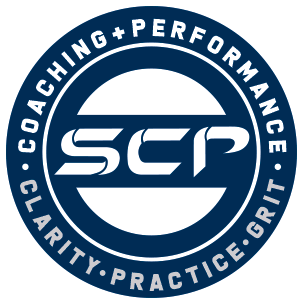Nurturing resilience
Clear vision. Deliberate action. Consistent feedback. On repeat. It's the optimal recipe for leaders to cultivate the environments that encourage their teams to thrive. This kind of situational leadership can be exhausting though. For leaders committed to high performance - results and personal growth in equal measure - persistence over the long term and amid all sorts of obstacles inside and outside their organization can be challenging. How does high performance culture endure, or as pioneering psychologist, Angela Duckworth coined it, how does the leader as coach maintain grit?
As the MacArthur fellow and bestselling author popularized through her book and oft-watched TED Talk, grit is a unique skill in that it must accompany setback and even failure in order to be unleashed; it is the response to challenge. Grit recognizes that something is difficult, but not impossible. It may take hard work, it may require the vulnerability of asking for help, and it may not be done right the first time, but it will get done. Grit says, this is hard, but not insurmountable. Grit requires mess. It’s perseverance, determination, and hard work through struggle. With repetitive practice, grit results in growth. To support leaders as coaches with their grit, we focus on three pillars:
Perspective - the practice of reframing - the effort of seeing setback through a different lens - to pull meaning out of challenging situations
What are the facts of the situation? What are my feelings about the situation? Who has been faced with a similar challenge and could offer advice? What learning can I bring to future situations?
Physical - vitality measures such as sleep, nutrition and exercise
Am I getting enough quality sleep? Am I eating enough meals at the right time of day? Am I doing enough physical activity each day? What is one thing that I can do each day to ensure I maintain one vitality habit?
Relationships - the cultivation of strong networks including social connections that offer guidance or support and mentorship that can help to mitigate the loneliness of senior leadership
Who models the behaviour that I’m inspired by? What regular contact do I have with friends or mentors who inspire me? When do I make time for important social interactions?
At SCP, one tool that we use to support leaders as coaches is the Leadership Philosophy. As a resource, the Leadership Philosophy offers clarity for how a leader wants to show up given the identity they have or are pursuing. The Leadership Philosophy also gives direction or guidance on the habits that will help to demonstrate that identity. And finally, one's Leadership Philosophy can serve as a compass or North Star when a long-term pursuit gets stormy, cloudy or dark.
Curious to get started on your own leadership philosophy? Get inspired by our Leadership Philosophy Quick Start Guide.
Signature strengths. Write down 3-5 of them such as creativity, honesty and bravery.
Consider, when you're at your best, what are 10 words to describe you? What might we hear you say or see you do? Write it down.Inspiration. Who are five people who inspire you?
Consider their behaviours that motivate you. Write them down.Words to live by. Do you have a favourite quote, song lyric or line from a book that sticks with you? Write it down.
Sort & edit. Circle or highlight the words or phrases that resonate most with you. Use them to compile a few phrases or sentences that will shape your philosophy.
Give it a name. Give your philosophy a name. Consider where and how you will practice this mindset.
Considering identity-based habits? Get started with James Clear’s quick start guide.
“You may encounter many defeats, but you must not be defeated.”
